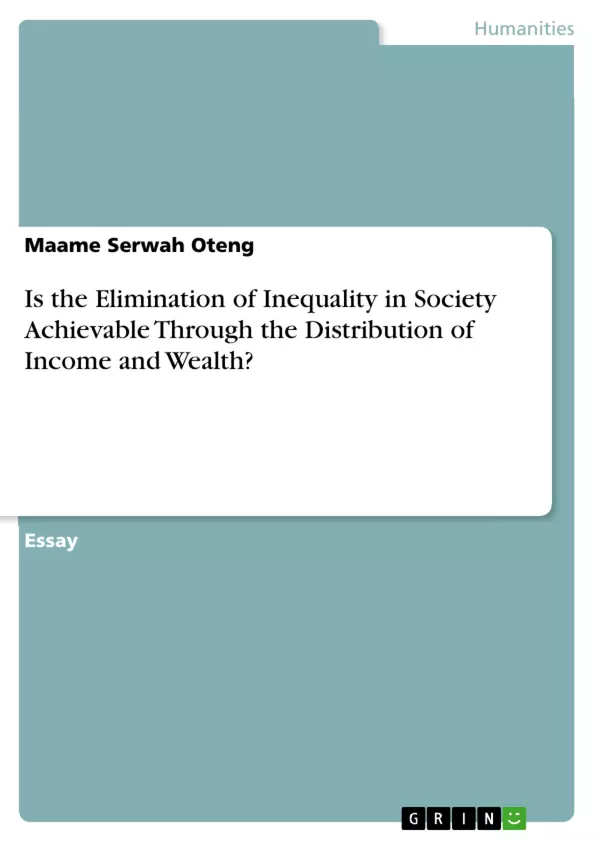The word inequality derives from the Medieval Latin word "inequalitas", which basically refers to the unfair situation in which some individuals within society have more rights or better opportunities than other do. Inequality throughout historical times has always occurred in various forms such as socially, economically, racially and even in areas concerning gender.
Some of the major ways in which inequality has affected many states within the international system are in the areas of income and wealth which many scholars place under the umbrella of economic inequality. Inequality is a subject, which dated as far back as during the days of slave trade and colonialism.
Table of Contents
- Introduction
- Inequality: Historical Perspectives
- Colonialism and Apartheid in South Africa
- Social Inequality in Iron Age Societies
- Methods and Systems of Income and Wealth Distribution
- The Welfare State System
- Social Insurance Programs
- Social Assistance Programs
- Charitable Institutions
- Challenges to the Elimination of Inequality
- Practical Difficulties of Equal Distribution
- Deservingness of Different Incomes
- Human Nature and Ego-centrism
Frequently Asked Questions
What are the main forms of inequality discussed in this paper?
The paper focuses on economic inequality, specifically the distribution of income and wealth, but also touches upon social, racial, and gender-based inequality.
How is inequality linked to history?
Inequality is described as a long-standing issue dating back to the slave trade and colonialism. It examines historical perspectives like Apartheid in South Africa and social structures in Iron Age societies.
What methods are used for income and wealth distribution?
The paper explores the welfare state system, which includes social insurance and social assistance programs, as well as the role of charitable institutions.
What are the major challenges to eliminating inequality?
Key challenges include the practical difficulties of equal distribution, varying perceptions of "deservingness" for different income levels, and inherent human nature or ego-centrism.
Is total equality achievable according to the text?
The paper raises critical questions about whether the elimination of inequality is truly achievable, considering the deep-seated historical, social, and psychological barriers mentioned.
- Citation du texte
- Maame Serwah Oteng (Auteur), 2016, Is the Elimination of Inequality in Society Achievable Through the Distribution of Income and Wealth?, Munich, GRIN Verlag, https://www.grin.com/document/1215472



